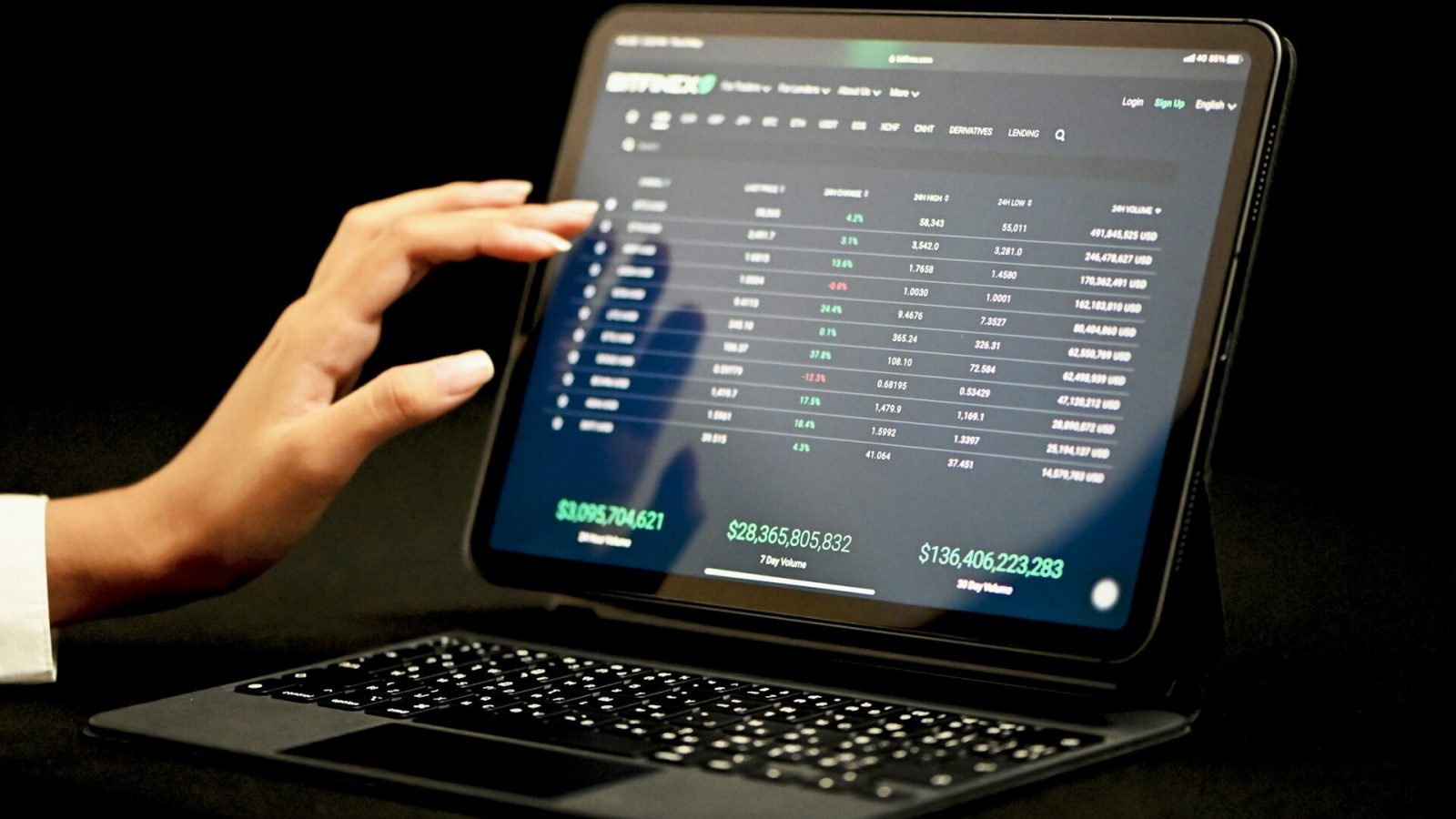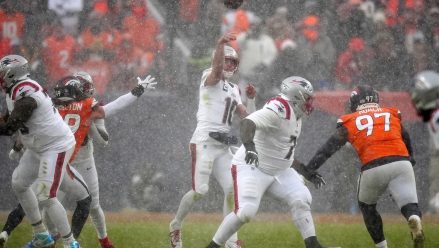If there’s anyone who can compare sportsbooks and the exchange-style betting offered by prediction markets like Kalshi, it would be Flutter Chief Executive Peter Jackson.
As well as owning FanDuel, alongside other successful sportsbooks abroad such as Paddy Power, Jackson’s business runs Betfair, the world’s largest betting exchange.
But Jackson — despite being the boss of a business that dominates the exchange-betting sector — doesn’t sound all that sold on exchanges.
He believes that in a straight-up competition with sportsbooks, customers usually prefer the sportsbook.
“The Betfair Exchange has, for many years, given us very good insights in terms of how this stuff can play out,” he said when asked about the rise of prediction markets offering sports event contracts during his company’s first-quarter earnings call.
“And I think it tells us that you’ve got to be quite thoughtful about how exciting the exchange product can be when you have a fully fledged sports betting product available to you.
“I think that for existing states where sports betting is allowed, I’m not that confident that this will have a significant impact.”
It’s not normal to see a CEO talk down a product where his business dominates globally, but Jackson may have a point: Sports event contracts from prediction markets like Kalshi aren’t really all that new, and they haven’t exactly come to dominate the sports betting market in other jurisdictions where they were tried.
Betting exchanges, offering customers the chance to buy and sell (or “back” and “lay”) certain outcomes have been around in the UK — as well as some other countries — for decades. And they were once talked about as the future of betting.
When Betfair — which ultimately became the dominant exchange across the globe — debuted in 2000, its marketing team paraded a coffin around the city of London, proclaiming the “death of the bookmaker.” Why would anyone bet with a sportsbook, when they could bet directly against peers at better prices?
Did it live up to the hype? Maybe at the start. Certainly not into the 2020s.
Declining market share
If you don’t believe Jackson, you can look at the numbers.
Though exact figures for the UK market before 2014 are hard to come by, exchange betting market share is believed to have peaked somewhere around the mid-teens. In 2009, the Betfair exchange made more revenue than Paddy Power — which was also among the leaders in the UK’s strong retail betting market — or bet365. In volume terms, it dwarfed them.
But pretty quickly, its popularity waned. It certainly didn’t kill off the bookmaker.
By 2014-15, exchange betting made up 10.1% of the UK’s online betting market, according to the British Gambling Commission. In 2023-24, it was less than 5%. In absolute terms, exchange betting revenue peaked in 2016-17, at £171.5 million ($214.2 million at the time). Last year, it fell to £114.6 million ($144.1 million), even though the UK online betting market as a whole has grown 20% since then.
Outside of horse racing, the exchange was a niche product.
In other countries where exchanges are active, market share is typically even smaller.
Kalshi, for its part, acknowledges similarities to betting exchanges but believes distinctions will become clearer over time.
A Kalshi spokesperson told InGame the long-term “bull case” for Kalshi still lies mostly in its potential to let traders stake money on outcomes that aren’t related to sports, where no other regulated business can offer odds.
But InGame analysis has shown that sports dominate Kalshi, and are growing quickly, while trading in non-sports events is more stagnant.
It’s also worth noting that non-sports bets are not completely absent from the UK’s betting exchanges. While those businesses are certainly more sports-focused than Kalshi, they do offer a solid selection of non-sports markets, from general elections to reality television events. In essence, both Kalshi and Betfair are businesses that offer trading on sports and politics, and make most of their money from the former, even if the percentages are different.
The parlay problem
Why have exchanges struggled to compete with the modern sportsbook? The most common answer is parlays, and especially same-game parlays. Those bets play a part, but are far from the whole story.
The ability to offer bets on multiple outcomes, especially multiple outcomes in a single game, is seen as crucial to the question of whether a prediction exchange like Kalshi can unseat the top sportsbooks.
Parlays have been a huge money-spinner for traditional betting operators. In New Jersey, they made up a little over 60% of the operators’ betting revenue in April.
FanDuel launched the same-game parlay in September 2019. According to Deutsche Bank research cited by Flutter, same-game parlays made up 24.3% of U.S. regulated sports betting stakes in 2023. With steep margins, approaching 20%, these bets are an even larger portion of revenue for sportsbooks.
Those bets are what Jackson cited when he doubted the ability of an exchange to compete with sportsbooks in a fair fight.
“We can see how important the parlay mix is to a U.S. audience,” he said. “And of course, you can’t access that in the same way with something like the exchange.”
In an exchange model, liquidity — the ability to have someone able to take the other side of a wager — is everything. In a strong market, there should be either customers willing to buy or customers willing to sell at any possible price.
If liquidity isn’t there, the “buy” and “sell” prices get further apart and value for the bettor disappears.
But on same-game parlays, with huge numbers of possible bets — and hard-to-calculate correlations — it’s difficult to get enough action on the “no” side to offer prices that compete with sportsbooks.
“You could build up multiples [parlays] on there, but not as well,” Ed Birkin of H2 Gambling Capital told InGame. “So I imagine Kalshi and the like trying to do a same-game parlay product just isn’t going to work well.”
More than just parlays
The rise of same-game parlay-type products definitely played a role in the diminishing of Betfair’s market share.
But the example of the UK suggests there may be other factors at play. Timing alone should make that clear. Exchange betting’s market share is believed to have peaked close to the late 2000s, long before the rise of same-game parlay-type products.
Signs the exchange model couldn’t do it all became clear by 2012, when Betfair launched a sportsbook. To some, especially on its community forums, it was seen as an admission of defeat for the exchange model. If Betfair’s core product was so good, why launch a sportsbook?
“There’s quite a few things that an exchange can’t do that a bookmaker can,” Birkin said.
For one, the liquidity wasn’t just an issue for parlays. It was tough to get action on both sides of smaller markets too.
Sportsbooks like bet365 were able to present a 24/7 in-play offering, thanks to an ability to offer odds on even the most obscure sporting events from less-popular leagues across the world. Meanwhile, exchanges struggled to provide a competitive offering, with users complaining of low liquidity for soccer matches played outside of Europe’s major leagues.
And even for bigger events, the liquidity usually only comes in close to the start time.
“There was an issue where if people wanted to get bets on early, they couldn’t do that,” Birkin said.
Kalshi appears to be suffering from the same problem. It put up NFL Week 1 lines last week, but with little activity so far, the prices are worse than those at a sportsbook.
Marketing challenges
Marketing played a role too. The biggest sportsbooks have devoted billions to reaching customers and getting them to sign up with just the right kind of enticements.
Usually at the center of that strategy are free, or risk-free, bets, or similar promo offers. As operators launched in the U.S., some offered promos worth thousands of dollars.
Birkin says those kinds of offers are much more costly for an exchange. As the original stake for a free bet is not returned to the bettor, it’s hard to recoup the full advertised value of the promo. To maximize the value of the offer, gamblers have to bet on longshots, but many choose not to, preferring a higher possibility of winning.
On an exchange, if you lose, someone else wins your stake. That means the full value of a free bet is guaranteed to go to someone: either you or someone on the other side of your bet.
“They’re effectively just giving you cash because there’s no way [the exchange] can win,” Birkin says.
Bookmakers could also offer lower vig on the biggest events, knowing it could act as a promotional tool to get customers on board and betting more later.
In other words, if an event was too obscure, bookmakers often had better prices than exchanges, which struggled for liquidity. But if it was too popular, bookmakers often had better prices than exchanges as a promotional strategy.
At a conference in May, Kalshi co-founder Tarek Mansour said the business will move “aggressively” in 2026, but didn’t provide details. That could include a major marketing push of some kind.
Winners welcome
But one major problem exchanges struggle with is the same thing that seemingly makes them so appealing: They offer sharp odds and don’t ban winners.
Professional bettor Rufus Peabody told ESPN that he was a Kalshi customer last week.
“I think they’re absolutely a net positive, for me, for sure, because they serve an underserved part of the market: the sharps, the semi-sharps, the people who are price-sensitive,” he said.
But for every Rufus Peabody who wins, somebody’s a loser. And it’s not just that losing bettors might feel demoralized. There’s a financial element to it too.
An exchange makes a lot more money when winnings are passed back-and-forth between customers. This means more transactions — where the exchange takes a cut — without customers actually gaining or losing much money on net.
If all the money keeps going to consistent winners, it’s like it’s gradually getting sucked out of the system.
“[Betfair] had these sharks and they were just eating all the small fish to the point where the small fish didn’t really want to keep coming back and they’re like, ‘actually I’ll just go to a bookmaker,'” Birkin said.
It ultimately addressed this with the “Premium Charge,” effectively a higher fee for bettors who consistently won. Some customers weren’t happy.
“On the community platforms, bettors say, ‘Now they’re putting these surcharges on to try and get more money from customers.’”
Kalshi may not settle on the same solution, but it likely will have to find a way to ensure its less-sharp customers’ money doesn’t all flow directly to people like Peabody.
Tax and regulation change things
But ultimately, it’s not clear whether the lessons from the UK and other markets apply to the current U.S. ecosystem.
The issue is that this isn’t an entirely fair fight, at least right now. Kalshi — as a CFTC-licensed exchange — literally plays by a different set of rules to state-regulated sportsbooks.
The prediction market is available in states like California and Texas with no regulated sports betting options.

Even in some states with regulated markets, like New York and likely soon Illinois, regulated sportsbooks have to deal with sky-high taxes, which make it harder to offer competitive prices or hand out enticing promos.
“If the bookmakers are paying 50% of their revenues as tax and you’re not, then you’ve got a lot of power,” Birkin said.
Mansour’s bio on social media site X used to simply say: “Free markets.”
But the future of his company’s sports offering may depend on its ability to avoid them.





